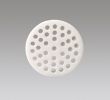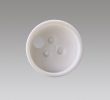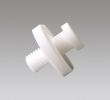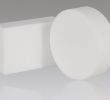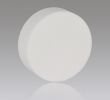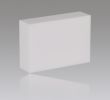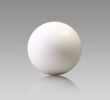MACOR® Machinable Glass Ceramic
MACOR® Machinable Glass Ceramic
The MACOR® :
When the constraints linked to the application are less demanding (temperature and wear for example), the MACOR® machinable glass ceramic offers an easy and relatively efficient alternative to KYOCERA-DEGUSSIT technical ceramics. This white, dense and very smooth material can be machined on conventional machining centres, which results in a gain in flexibility and time compared to sintered ceramics, which require grinding with diamond wheels and tools. MACOR® machinable glass ceramics can be used to achieve very tight tolerances and polished surfaces.
The advantages of MACOR® :
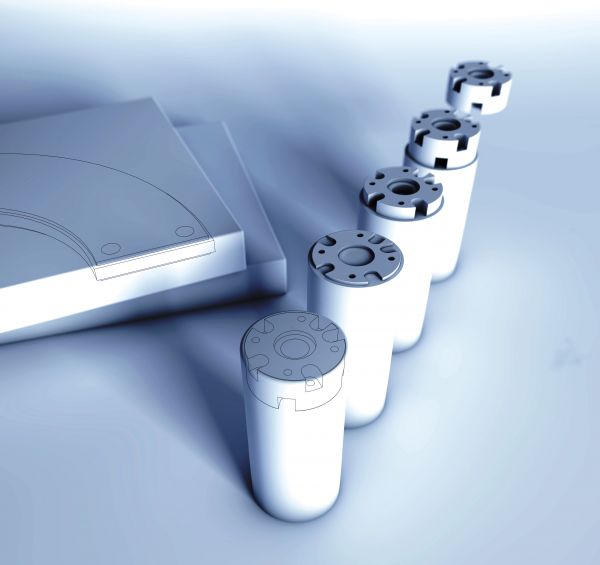
- Short lead times, no need to anneal after machining.
- Maximum operating temperature of 800 °C continuous and 1000 °C peak.
- Offers tight tolerances, down to 0.01 mm. Possibilities are limited only by the tooling available and the experience of the machinist.
- Versatile, tough material with insulating properties that exceed those of high performance plastics.
- Clean, no outgassing and zero porosity.
- Will not deform, unlike ductile materials.
- Low thermal conductivity, excellent electrical insulator.
- Radiation resistant.
- Can be brazed to other materials.
Fast production process :

- Ordinary machining tools
- Design of complex geometries
- No annealing required after machining
- Efficiency and cost effectiveness
- Shortened delivery time
Click here to download the MACOR® machining details as a PDF.
Blanks in stock:
In Paris, we have raw maxi-slabs of MACOR® (useful dimensions: 317 x 317 x 54 mm) as well as raw bars of MACOR® (useful dimensions: Diam. 76 x 311 mm) in stock. These raw blanks are offered in the form of semi-finished products: plates, bars, strips, etc. or as parts according to customer drawings.
Properties of MACOR® machinable glass ceramic:
Click here to download the properties of MACOR® as a PDF.
| I. Thermals | |
|---|---|
|
Dialation coefficient CTE-100°C → 25°C CTE 25°C → 300°C CTE 25°C → 600°C CTE 25°C → 800°C |
8,1 × 10-6 /°C 9 × 10-6 /°C 11,2 × 10-6 /°C 12,3 × 10-6 /°C |
| Specific heat, 25°C | 0.79 kJ/kg°C |
| Thermal conductivity, 25°C | 1,46 W/m°C |
| Thermal diffusivity, 25°C | 7,3× 107 m2/s |
| Recommended operating temperature | 800°C |
| Maximum temperature (peak) | 1000°C |
| II. Mechanics | |
|---|---|
| Density | 2,52 g/cm3 |
| Porosity | 0% |
|
Young's Module, 25 °C (Modulus of elasticity) |
66,9 GPa |
| Poisson's ratio | 0,29 |
| Shear modulus, 25 °C | 25,5 GPa |
| Knoop hardness, 100g | 250 kg/mm2 |
|
Modulus of rupture, 25 °C (Flexural strength) |
94 MPa (Minimum specified average value) |
|
Compressive strength (After polishing) |
345 MPa upto 900 MPa |
| III. Electrics | |
|---|---|
|
Dielectric constant, 25°C 1 kHz 8.5 GHz |
6,01 5,64 |
|
Loss angle tangent, 25°C 1 kHz 8.5 GHz |
0,0040 0,0025 |
|
Average dielectric strength (AC) (at 25 °C under 0.03 mm thickness) |
45kV/mm |
|
Average dielectric strength (DC) (at 25 °C and 0.03 mm thickness) |
129 kV/mm |
| DC volume resistivity, 25 °C | 1017 Ohm.cm |
| IV. Chemicals | ||||
|---|---|---|---|---|
|
Weight loss (mg/cm2) |
||||
|
Solution |
pH |
Duration |
Temp. |
Gravimetry |
|
5% HCl (Hydrochloric acid) |
0,1 |
24 h |
95°C |
~100 |
|
0,002 N HNO3 (Nitric acid) |
2,8 | 24 h | 95°C | ~0,6 |
|
0,1 N NaHCO (Sodium bicarbonate) |
8,4 | 24 h | 95°C | ~0,3 |
|
0,02 N Na2CO3 (Sodium Carbonate) |
10,9 | 6 h | 95°C | ~0,1 |
|
5% NaOH (Sodium Hydroxide) |
13,2 | 6 h | 95°C | ~10 |
|
Chemical durability |
Class |
|||
| DIN 12111 / NF ISO 719 | Water | HGB2 | ||
| DIN 12116 | Acid | 4 | ||
| DIN 52322 / ISO 695 | Alkaline | A3 | ||
Technical data of MACOR® machinable glass ceramics:
Click here to download the technical data of MACOR® as a PDF.
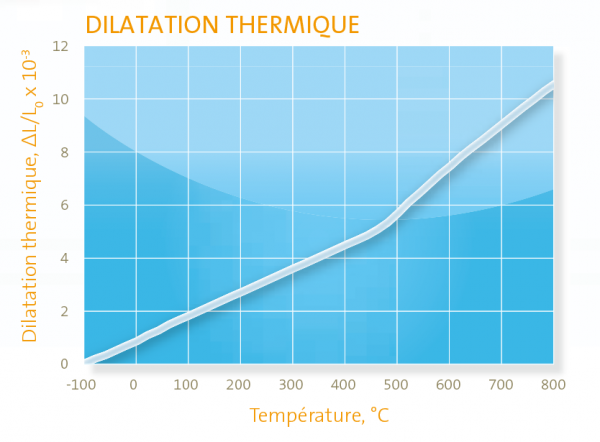
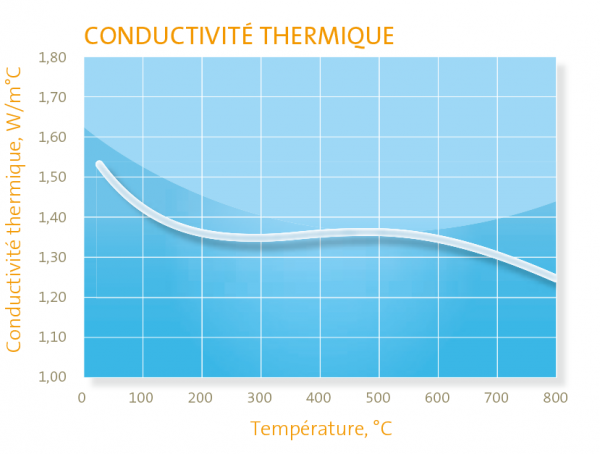
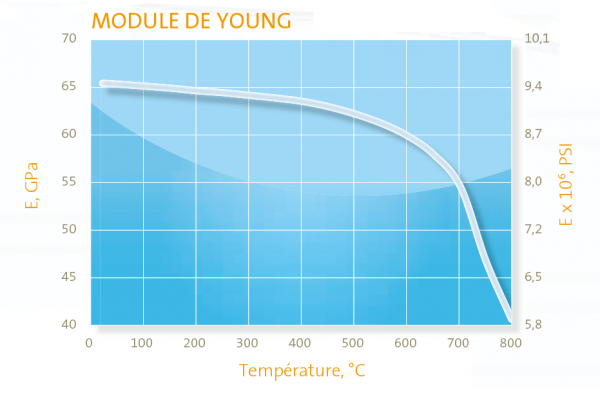
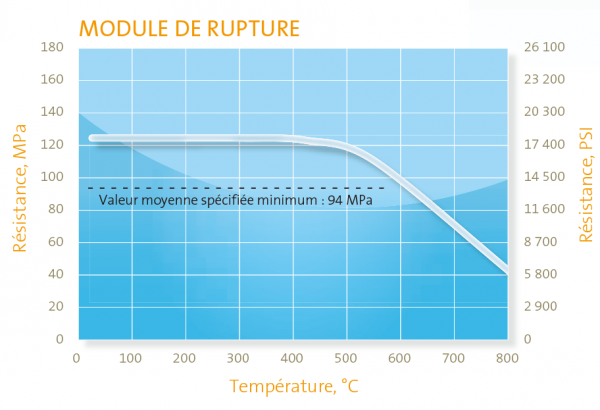
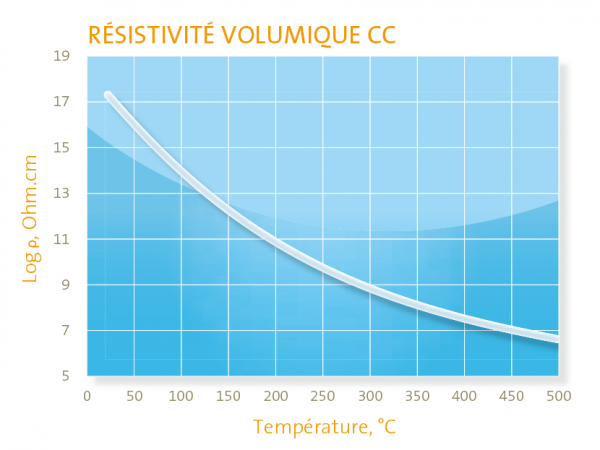
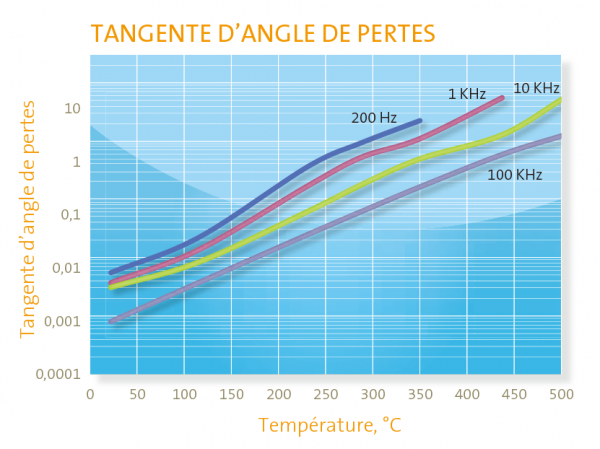
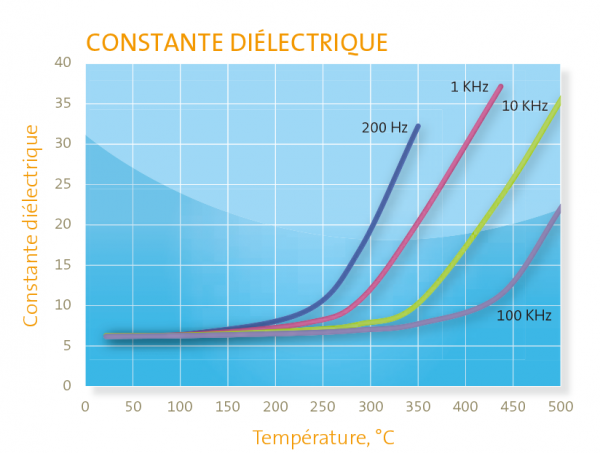
The general characteristics indicated are based on periodic tests carried out in Corning laboratories on samples.
Properties may vary slightly from batch to batch.
MACOR® Machinable Glass Ceramic is a registered trademark of Corning Incorporated, Corning, NY





